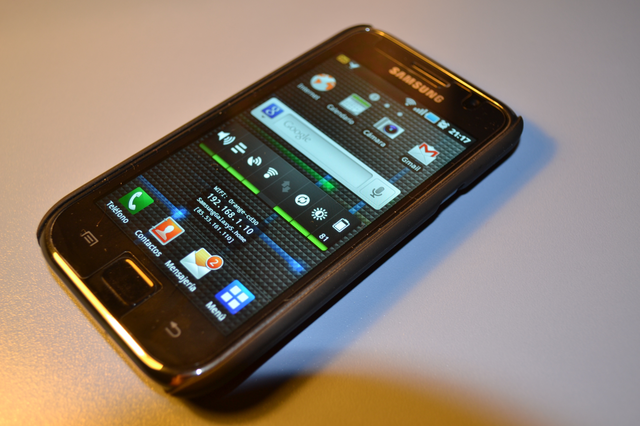AT&T Preps 5 New Android Phones to Counter iPhone 4S
Unsure how many customers a Sprint iPhone will attract, AT&T is preparing five new Android-based smartphones designed to counter Apple’s latest handset. The new crop of phones powered by Google’s mobile operating system include devices from Motorola and Samsung.
The No. 2 wireless carrier announced the upcoming release of the Motorola Atrix 2, Samsung DoubleTime, Samsung Captivate Glide, Pantech Pocket and AT&T Avail. The company “now provides more options for customers seeking the Android OS experience at a variety of price points, form factors and through unique services,” AT&T announced Tuesday.
The Motorola Atrix 2, priced at $99 and set for an Oct. 16 release, will appear just two days after the iPhone 4S launches. The handset is the second-generation of the Atrix 4G which generated quite a bit of buzz but failed to deliver equal sales interest. Like the new Apple handset, the Atrix 2 has a 1 GHz dual-core processor and an 8-megapixel camera that can shoot 1080p HD video. Other features include 4G HSPA+ connectivity and a 4.3-inch screen.
Although most attention is on Samsung’s upcoming release of the Nexus Prime sporting Google’s new Android 4.0 operating system codenamed “Ice Cream Sandwich,” the South Korean company is also set to begin sales of two other smartphones powered by the older Android 2.2, both from AT&T. The Samsung Captivate Glide has the usual features, including a 4-inch Super AMOLED screen, 8-megapixel screen and slide-out keyboard. The other Samsung device, the DoubleTime, includes a flip keyboard and a pink and white color design.
AT&T also plans to introduce the Pantech Pocket, a device “focused on social entertainment and messaging.” AT&T’s Avail is aimed at the carrier’s GoPhone pre-paid customers, reports say.
Earlier this year, AT&T announced it would not depend on the Apple iPhone for the majority of profits. Since that time, the carrier has introduced 19 Android phones. Since becoming the first U.S. carrier to offer the iPhone, AT&T has seen its early advantage erode. First, Apple added Verizon to the mix, and just recently Sprint.



